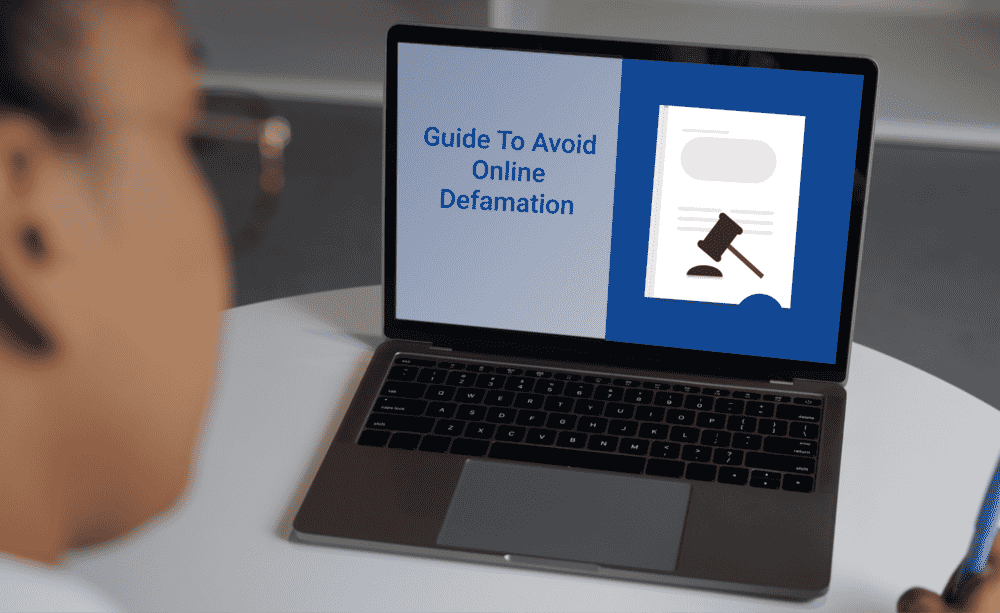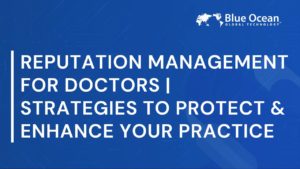Defamation cases play a crucial role in balancing the protection of personal reputations with the right to free speech. These cases help shape legal interpretations of false statements, reputational harm, and accountability. High-profile lawsuits and evolving technologies have kept defamation law at the forefront of public discussion. Competitors often use famous cases to drive attention and provide valuable FAQs to potential litigants, underscoring the importance of understanding this complex area of law.
This guide uncovers key legal definitions, explores famous defamation cases, and addresses common questions surrounding libel, slander, and legal defenses. At Blue Ocean Global Technology, we specialize in providing expert guidance on defamation law, online reputation management, and safeguarding reputation risks in a digital world.
What is Defamation? Key Legal Definitions and Types
Defamation occurs when false statements harm an individual’s or organization’s reputation. These statements blur the line between free expression and accountability, making defamation law an essential part of protecting reputational integrity. It is categorized into two primary types: libel (written) and slander (spoken).
How Is Defamation Defined in Law?
The legal definition of defamation revolves around reputational harm caused by knowingly or negligently false statements.
- A defamatory statement is one that is demonstrably false, injurious to reputation, and made to a third party without consent.
- Libel refers to written statements or representations, while slander deals with spoken ones. Libel often has broader legal implications due to its permanence.
- Historically, defamation laws targeted print and verbal communication, but modern legislation and case law now address digital defamation on social platforms and websites.
Can Opinions Be Defamatory?
Opinions, when expressed as personal viewpoints, generally receive constitutional protection under the right to free speech. However, misrepresenting false information as fact, even under the guise of opinion, can constitute defamation.
- Courts evaluate whether a statement would be perceived as fact or opinion by a reasonable person.
- The “opinion defense” protects speech only if it cannot be proven true or false. Misleading factual claims disguised as opinions are exceptions to this rule.
- Social media complicates this distinction, as platforms like Instagram and X (formerly Twitter) blur the line between personal commentary and damaging claims.
What Are the Types of Defamation?
High-profile legal victories provide valuable precedents in differentiating cases of libel and slander. These cases often fall into three categories:
- Corporate Defamation: False claims about a business’s products or reputation.
- Personal Defamation: Cases affecting individuals’ reputations, such as slander targeting private citizens.
- Public Figure Defamation: Claims involving politicians, celebrities, or public figures, requiring the plaintiff to prove actual malice.
Elements of Defamation: What Courts Consider
Defamation lawsuits hinge on proving specific legal elements. Courts review the facts of each case to determine whether culpable defamation occurred.
What Are the Elements of Defamation?
Understanding the key elements of defamation is essential for both plaintiffs and defendants. Courts generally consider the following:
- Falsehood: The statement must be proven untrue.
- Publication: The defamatory statement must have been communicated to a third party.
- Harm: Claimants must show reputational, financial, or other damages resulting from the statement.
- Actual Malice: Public figures must demonstrate that the statement was made knowingly false or with reckless disregard for the truth, while private citizens need to show negligence.
These elements vary slightly for libel and slander cases but remain consistent in requiring clear evidence.
How Does a Court Determine Defamation?
Courts rely on evidence to evaluate intent, knowledge, and harm. Proving intent or recklessness is critical for public figure cases.
- Private individuals must only show negligence, meaning the defendant failed to exercise due care.
- Reputation-related harm is assessed tangibly through financial losses or intangibly by evaluating emotional impact, such as public humiliation.
Defining Defamation in the Digital Era
Digital platforms like Facebook have introduced unprecedented legal challenges. Anonymity and rapid global dissemination complicate identifying liability.
- Anonymous apps or forums can obscure the identities of individuals posting defamatory tales, limiting victims’ recourse.
- Platforms are also shielded under Section 230 of the Communications Decency Act, further complicating accountability.
Landmark and Famous Defamation Cases in History
Many defamation lawsuits have left enduring impacts on free speech laws and personal rights. These cases underline the tension between protecting reputations and allowing free expression.
Nine Defamation Cases That Will Leave You Speechless
- New York Times v. Sullivan: This landmark case established the “actual malice” standard, protecting media outlets when reporting on public figures.
- Gertz v. Robert Welch, Inc.: It clarified protections for private citizens, limiting the scope of public figure defamation standards.
- Hustler Magazine v. Falwell: It emphasized the role of satire, establishing that parody is legally distinct from defamatory intent.
- McLibel Case: The longest-known libel case, involving claims of defamation against McDonald’s, spotlighted corporate lawsuits.
- Johnny Depp v. Amber Heard: This case highlighted the complexities of defamation when celebrities are involved.
- The Elon Musk ‘Pedo Guy’ Case: The Tesla CEO’s tweet contested long-standing assumptions about social media defamation.
- David Irving Libel Case: Questioned Holocaust denial and emphasized evidentiary standards.
- United States v. Alvarez: Demonstrated a rare free speech defense for a false claim, questioning whether the statement qualified as defamation.
- Bank of Boston v. Bellotti: Defined corporate free speech rights under U.S. defamation frameworks.
Notable Defamation Cases in Recent Years
Recent lawsuits, particularly involving celebrities or online platforms, showcase evolving interpretations of the law. Social media users should note that defamation judgments now factor in virality and audience reach.

Image Credits: Pexels
Defenses Against Defamation Claims
Effectively defending against defamation accusations involves understanding legal precedents and available protections.
What Are Defenses Against Defamation Claims?
Valid defenses help individuals and companies dismiss or mitigate baseless defamation lawsuits.
- Truth: As the ultimate defense, proving the accuracy of a statement nullifies claims.
- Privilege: Some contexts, like legislative or judicial discussions, grant statements automatic protection.
- Fair Comment: Journalists and critics can rely on fairness principles if their commentary is based on verified facts.
Advice for Avoiding Defamation Lawsuits
Preventive measures can safeguard reputations while ensuring legal compliance.
- Conduct thorough fact-checking on statements to avoid liability.
- Seek early advice from legal or PR professionals to adequately assess possible risks.
Legal Defenses for Social Media Users
Online influencers, reviewers, and content creators face unique risks. Securing informed legal strategies, such as disclaimers and documented sourcing, adds layers of protection.
What Damages Can Be Recovered in Defamation Cases?
Victims can recover compensation depending on the scope of reputational harm or associated financial losses.
What Damages Can You Recover in a Defamation Lawsuit?
Claimants may seek damages such as:
- Lost earnings or diminished income due to reputational injury.
- Emotional distress or potential therapy costs tied to public humiliation.
- Favorable verdicts historically include financial recovery for legal fees.
Emerging Issues in Defamation Law for 2025
Technology and globalization raise critical questions about evolving protection frameworks for online vindication.
How Social Media Is Changing Defamation Law
Real-time communication amplifies reputational risk. Missteps, even in fleeting moments of virality, now have long-term consequences. Platforms often create barriers to quick retractions or accountability.
Future Outlook: How the Law Is Adapting for 2025
Courts may soon address verification technologies, such as blockchain, to uphold evidentiary accuracy. Emerging demands for international consistency in baseline protections could harmonize existing disparities.
Expert legal insights can simplify navigating defamation cases. Blue Ocean Global Technology offers tailored services to help protect reputations in an increasingly digital society.
FAQs
What is defamation, and how is it legally defined?
Defamation is a false statement that harms an individual’s or organization’s reputation. It is categorized into two types: libel (written) and slander (spoken).
Can opinions be considered defamatory?
Generally, opinions are protected under free speech. However, if an opinion falsely presents itself as a fact, it can be considered defamatory.
What are the key elements required to prove defamation?
To prove defamation, one must establish the falsehood of the statement, its publication to a third party, reputational harm, and, in some cases, actual malice if the plaintiff is a public figure.
Can social media posts be considered defamatory?
Yes, social media posts can be defamatory if they contain false statements that harm someone’s reputation, and they are communicated to others.
What are some common defenses against defamation claims?
Defenses include proving the truth of the statement, asserting it as an opinion rather than a fact, claiming privilege (e.g., in legislative contexts), and demonstrating fair comment based on factual information.
Need Help with Defamation Lawsuits?
Get expert guidance on legal standards and defending your reputation



 Source:Pexels
Source:Pexels Source: Pexels
Source: Pexels








